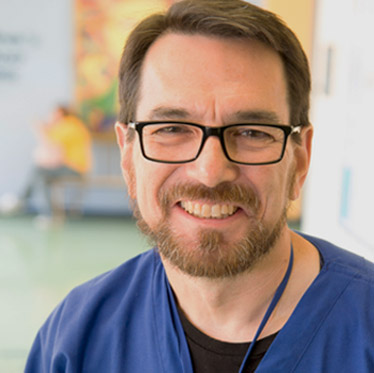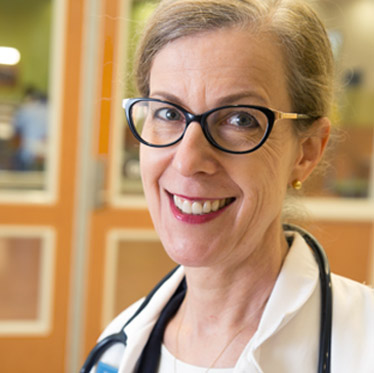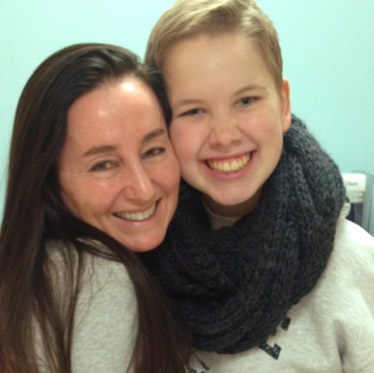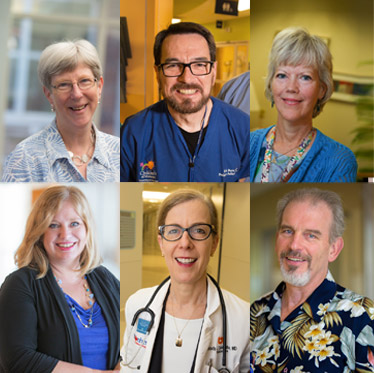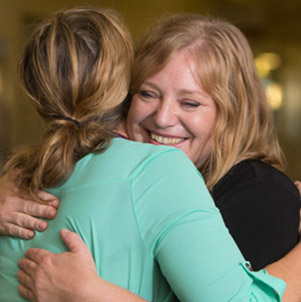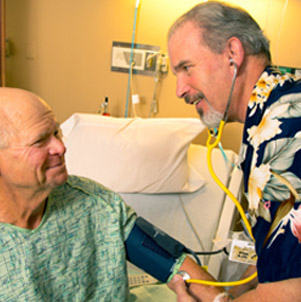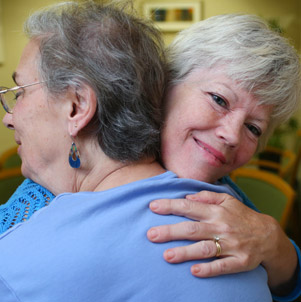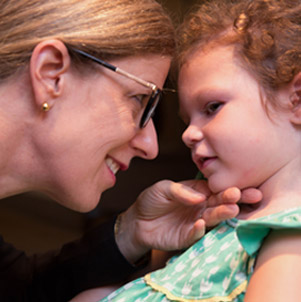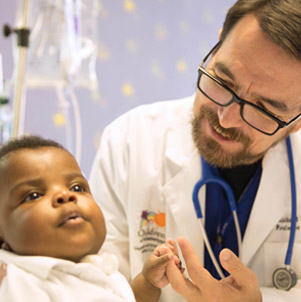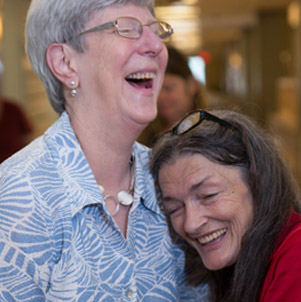

During our 20th anniversary year, we’ve seen tremendous growth for our organization as we work to advance compassionate care as a national priority and as a vital element in every patient-caregiver interaction. Our efforts have never been more timely or in demand than at this very moment.
With your help, we will continue to create innovative programs to meet the needs of patients, families, caregivers, and organizational leaders at this critical time. Some of our themes include:
Compassion can be taught.
Because every patient deserves to be treated with respect, empathy and compassion, we are undertaking new initiatives and programs to give caregivers the skills and knowledge to integrate compassionate, collaborative care into their daily practice.
Compassionate caregivers can serve as inspiration and a model for others, as we saw through our inaugural National Compassionate Caregiver of the Year Award. We received hundreds of nominations from across the country and began a movement to value these extraordinary men and women.
Caregivers are facing an epidemic of burnout, which is a barrier to high quality, compassionate care. We also need to help create supportive environments and systems to prevent burnout — you will see more from us in this area in 2016.
The success of our work will be measured in ways
that you will experience at least a few times
in your life. The significance of our mission remains our
guiding spirit into the future.
Julie A. Rosen, Executive Director
Thanks to the support of over 220 donors nationwide, our Campaign for Compassionate Healthcare surpassed its goal and raised $5.5 million! Through the campaign, we strengthened the primary focus of the Schwartz Center—reaching more caregivers nationwide. We also launched two new areas of programmatic innovation—making compassionate care a national priority and developing innovative and educational programs.
During twenty years of constant growth, we have learned a lot at the Schwartz Center. But mostly, that the essence of compassionate care is person to person.
- building relationships.
- One conversation at a time.
- One kind action at a time.
-
Dr. Rick Boyte, the recipient of the 2015 National Compassionate Caregiver of the Year Award, is a pediatric palliative and critical care physician who provides unwavering care for chronically ill children.
-
When 10-year-old Ellie Kavalieros was diagnosed with cancer, she and her family formed a strong relationship with one special doctor, who helped them navigate the health care system and served as a source of emotional strength.
-
When Rosemary's 6-year-old son was diagnosed with stage 4 cancer, Dr. Melody Cunningham earned their trust in a way few could, and built a powerful bond with both the patient and his family.
-
Award-winning author Dr. Atul Gawande presented the 2015 National Compassionate Caregiver of the Year Award. His work has illuminated the difficult choices caregivers, patients and families face every day.
Look How We’ve Grown...

People accessed
our publications
in 2015
People attended
our convenings
in 2015
Patient visits
strengthened by
our programs
each year
Individuals are
Champions of Compassion
who have contributed
for 10+ years
Caregivers reached
through our programs
each year
National Business
Members received
year-round benefits
and provided essential
support
Caregivers recognized
through our Honor
Your Caregiver program
since 2008
Organizations are
Health Care Champions
of Compassion that have
hosted the Schwartz Center
Rounds for 10+ years
Caregivers nominated for the
National Compassionate
Caregiver of the Year
award since 1999
-
At age 14, Elizabeth Schickel was diagnosed with an aggressive brain tumor that took her life a year after she was diagnosed. Elizabeth and her family had a special bond with her oncology nurse, Liz Mobassaleh, who cared for her entire family.
-
The compassionate care Dr. Mallika Marshall received from her fertility nurse not only helped her through her treatment, but also influenced how she treats her own patients.
-
For Sharon McNally, compassionate care has come in the form of simple gestures–a popsicle, a tube of lip balm, a reassuring word–during difficult health care experiences.
-
Our National Compassionate Caregiver of the Year Award finalists share their experiences providing compassionate care.
Financial Highlights
Philanthropy remains the primary source of revenue for the Schwartz Center. Our membership program, now in its second year of generating income, has grown to 19% of total net revenue.
During Fiscal Year 2015, 73% of all spending was directed to mission-specific programming. Fundraising and administrative costs represent the remainder. Philanthropy underwrote 83% of Schwartz Center membership expenses.
Our program investments for Fiscal Year 2015 resulted in a planned deficit of $240K, which was funded through capital campaign revenue and was significantly less than the planned deficit of $420K.
Revenue, net $3M
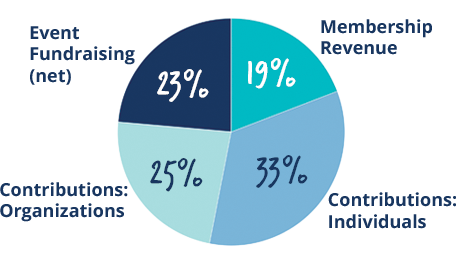
Expenses, net $3.2M
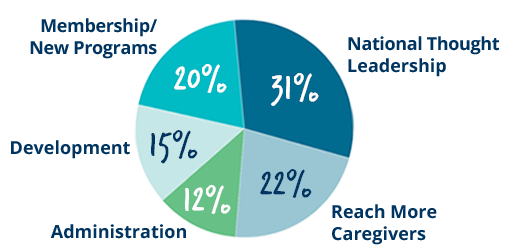
Together, we are leading the movement to bring compassion to every patient-caregiver interaction
Do you want to say "thank you" to a special caregiver?
Learn more about our Honor Your Caregiver program and help us celebrate everyday acts of compassion.


